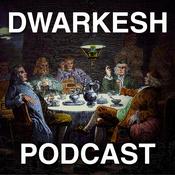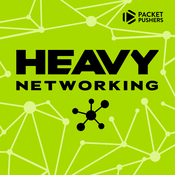62 episodes
- In this episode of Tech Policy Grind, the podcast goes international to discuss cross-border data flows! Darren Chng helps us unpack how personal data travels when we stream Netflix abroad, shop online, store files in the cloud, or what happens when those data flows collide with conflicting national laws, security risks, and infrastructure challenges.
- How do we protect young people online without sacrificing privacy and autonomy? In our latest episode of the Tech Policy Grind, Justice Shannon sits down with Dr. Jennifer King, Privacy and Data Policy Fellow at the Stanford Institute for Human-Centered Artificial Intelligence, for a nuanced conversation about age assurance, the current practices, and the emerging practices used to verify user age in online and offline spaces. Whether you’re a policymaker, technologist, or just curious about the future of privacy online, this episode is not to be missed.
- What do First Amendment rights have in common with Calvin and Hobbes? In Free Speech Coalition v. Paxton, the First Amendment is on trial, and according to Prof. Eric Goldman, it looks like the referees are playing Calvinball. On the latest episode of Tech Policy Grind, hosted by Justice Shannon, Prof. Goldman, a leading First Amendment scholar and law professor, breaks down the Supreme Court’s fractured logic in this pivotal case. His take? Justice Thomas didn’t follow precedent, he put it in a blender, cherry-picking fragments of past rulings to justify a result that was already decided. It’s a bold critique of how the Court handles First Amendment rights in the digital age and a warning for the future of content regulation, free speech, and tech policy.
S5E7: Ahead of Google’s Response, DuckDuckGo’s Joe Jerome explains the DOJ’s Antitrust Case
18/12/2024 | 41 mins.In this episode of Tech Policy Grind, the conversation delves into the significant antitrust case against Google led by the US Department of Justice. The discussion covers the historical context of antitrust actions, the proposed remedies aimed at breaking Google’s monopoly, and the implications for competition in the tech industry. Joe Jerome from DuckDuckGo provides insights into the complexities of the case, the importance of technical expertise in enforcement, and the potential impact on consumers and the future of AI development. The episode concludes with reflections on the global regulatory landscape and the ongoing nature of the legal proceedings. This episode was recorded on November 22, 2024 and is being published ahead of Google’s response, which comes out on December 20, 2024.- Today on the Tech Policy Grind: Our editor, Evan, bids the show farewell for his new role in corporate privacy compliance. He chats with Pedro Pavon, a privacy attorney at Meta, about what it means to be an advocate on the corporate side, how birding can help us maintain a beginners mindset, and how Pedro launched the Data Protection Breakfast Club.
Pedro is a lawyer and policy advocate focused on digital privacy, data strategy, and algorithmic fairness. He hosts the Data Protection Breakfast Club podcast and teaches privacy law at Georgia State University College of Law.
More Technology podcasts
Trending Technology podcasts
About Tech Policy Grind
On the Tech Policy Grind Podcast, we discuss the most pressing issues at the intersection of law and technology. We chat with friends and fellows of the Internet Law and Policy Foundry about their perspectives on emerging topics in tech law and policy. From AI to cybersecurity, internet governance, privacy, and more - join us weekly to dig into the latest in tech policy!
The Tech Policy Grind was created by Fellows from the Internet Law and Policy Foundry. The Foundry is a collaborative organization for Internet law and policy professionals who are passionate about disruptive innovation.
Reema Moussa is our host and executive producer. Evan Enzer is our editor, Daniela Guzman Peña produces the show, Lama Mohammed is our social and promotional coordinator, and our accessibility coordinator is Allyson McReynolds.
If you’re interested in supporting the show, reach out to us at [email protected].
ilpfoundry.us
Podcast websiteListen to Tech Policy Grind, Acquired and many other podcasts from around the world with the radio.net app

Get the free radio.net app
- Stations and podcasts to bookmark
- Stream via Wi-Fi or Bluetooth
- Supports Carplay & Android Auto
- Many other app features
Get the free radio.net app
- Stations and podcasts to bookmark
- Stream via Wi-Fi or Bluetooth
- Supports Carplay & Android Auto
- Many other app features


Tech Policy Grind
Scan code,
download the app,
start listening.
download the app,
start listening.


































